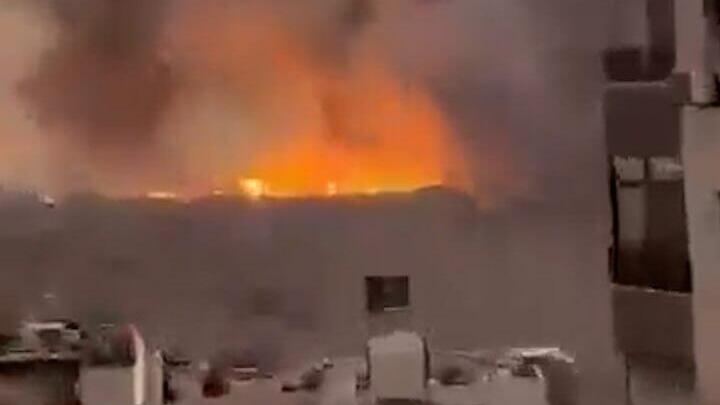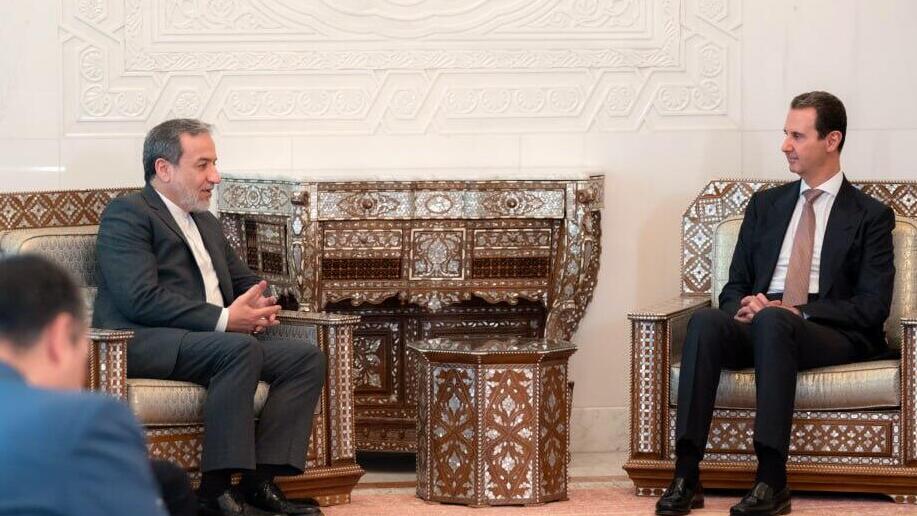Getting your Trinity Audio player ready...
Tehran is unwilling to relinquish its hold on Syria, according to a report in the UK’s Financial Times, citing Iranian officials. Decades of investment in building influence in Syria have made its loss a costly blow, the report said.
Iranian Foreign Minister Abbas Araghchi said Sunday that ousted Syrian President Bashar Assad “never asked” for Tehran’s aid against the rebels who overtook Damascus in a lightning offensive, forcing him to flee. “We were never asked for help,” Araghchi said in a live state television interview, adding that it was the Syrian army’s duty to counter the offensive, which toppled Assad.
Iran had supported Assad’s regime during Syria’s years-long civil war with military advisers and forces from Hezbollah, Tehran’s proxy. However, the Financial Times reported that Tehran had lost faith in Assad even before his fall. Araghchi reportedly informed Assad during his final visit to Damascus that Iran could not send reinforcements due to Hezbollah’s prolonged war with Israel.
According to an Iranian official quoted in the report, Assad claimed his withdrawal from Aleppo was tactical and insisted he remained in control. However, the speed of Assad’s collapse shocked Tehran. The report noted that Iran’s refusal to aid Assad was partly due to repeated Israeli attacks on Iranian forces in Syria and perceptions in Tehran that Assad was unreliable—even traitorous—for failing to prevent those strikes.
The official said years of frustration had eroded trust in Assad, with Iranian leaders concluding that “Assad’s time was over.” Assad’s inaction against Israeli strikes and his alignment with regional actors promising him a future outside Iran’s influence further alienated Tehran.
Get the Ynetnews app on your smartphone: Google Play: https://bit.ly/4eJ37pE | Apple App Store: https://bit.ly/3ZL7iNv
Some Iranian voices believed Assad was drifting toward alliances with Arab nations, such as the UAE, which had promised to help rehabilitate Syria post-war in exchange for distancing himself from Iran. After his fall, these voices accused Damascus of leaking intelligence on Iranian commanders to Israel and abandoning Iran during critical moments.
3 View gallery


A man steps on a picture of deposed Syrian leader Bahsar Assad
(Photo: Omar Haj Kadour / AFP)
Despite this, Assad’s fall is a devastating blow to Iran’s foreign policy and its regional strategy against Israel. Syria was a cornerstone of Iran’s “ring of fire” around Israel, and Tehran now fears the regime’s collapse could trigger a ripple effect in Iraq, where Iranian influence remains significant.
Iranian officials expressed concern that similar scenarios in Syria could repeat in Iraq and Yemen, urging immediate action to preserve decades of efforts that could unravel overnight.
Opinions within Tehran are divided over how to proceed. Some officials argue that Iran can maintain its influence in Syria by negotiating with rebel groups, emphasizing shared enmity toward Israel. Others advocate a more aggressive approach, with one lawmaker proposing a nuclear test to reassert Iran’s regional dominance.
Aftermath of a strike on Damascus
However, caution prevails in some quarters, as Hezbollah’s weakened state and the broader blow to Iran’s regional axis make immediate escalation risky. These officials stress the need to rebuild Hezbollah’s military capabilities before taking bold actions.
An Israeli official told the Financial Times that Iran’s influence near Israel’s borders would not disappear, as “Iran thrives in chaos.” He added that it was too early to predict whether Iran or Hezbollah would withdraw from Syria, but he believed Israel would continue facing the Iranian threat for at least the next decade.
It appears there is debate in Tehran over the best strategy moving forward. One Iranian lawmaker argued that Tehran must not only revive its regional axis but also conduct a nuclear test to solidify its influence. Others urged caution, noting Hezbollah’s weakened state and the significant blow to the axis. They believe it will take time to rebuild Hezbollah’s military capabilities, and until then, Iran must carefully consider its next moves.







